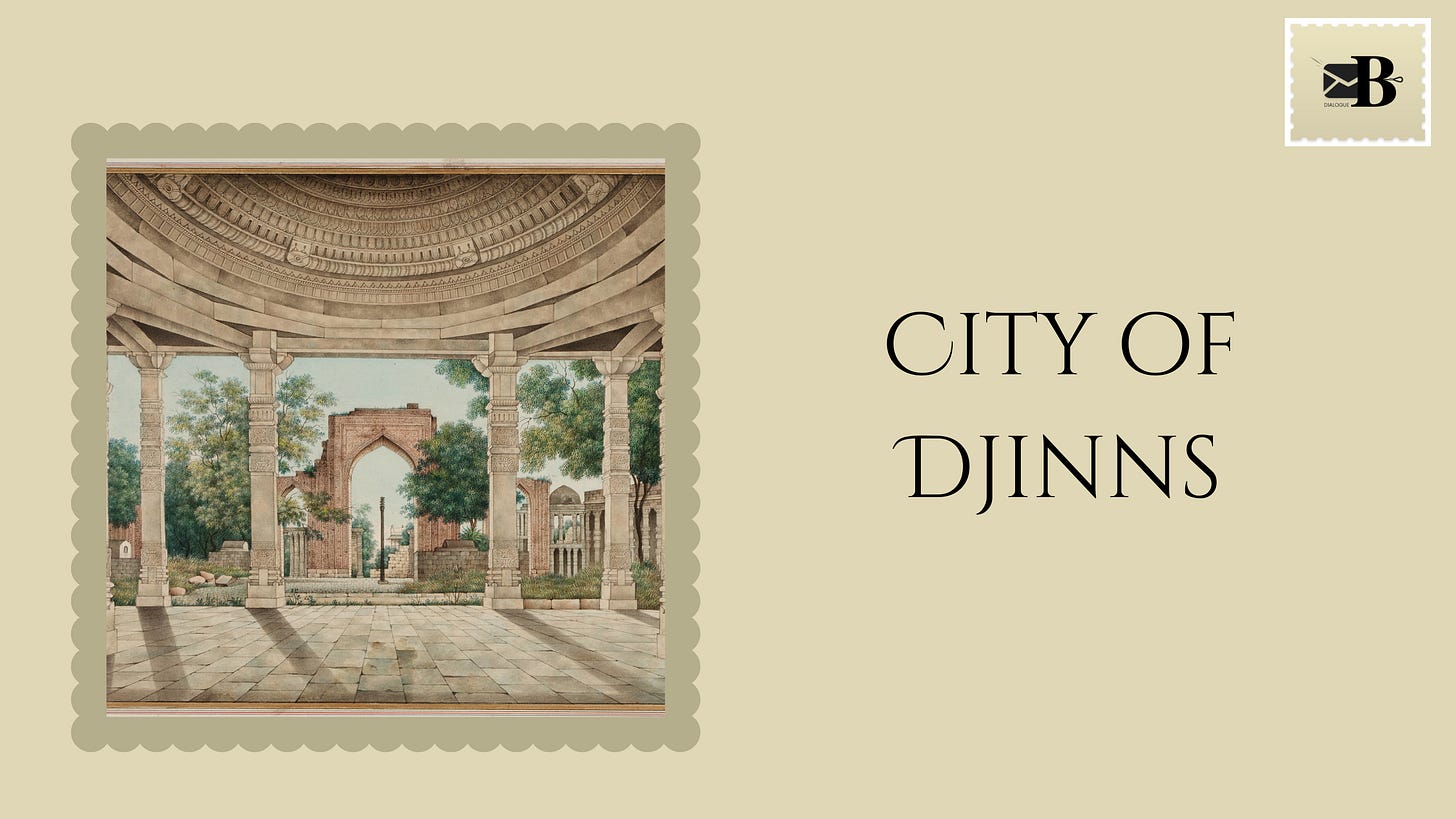Letter #3: City of Djinns, Mirza Ghalib and Rumi [06.11.2022]
Eighteenth-century Urdu poet Mir: It’s just your imagining that there’s a feeble body inside my clothes; In fact, there is nothing there but a mere idea of myself
Dear Friend,
I remember reading William Dalrymple's "City Of Djinns" at the beginning of the pandemic when we all had extra time to kill. When the restriction was lifted, I took a historical walk to Mehrauli, Delhi. The cultural moorings that Dalrymple painted in the "City Of Djinns" are still there; I could still see them amid all the chaos.
Traveling to Delhi is challenging because of the high pollution, but I decided to take a historical walk. There's an amalgamation of toxic and poisonous air, but there's a sweet smell of nostalgia at every corner. I started my walk from Mirza Ghalib's Haveli, the memory lane of Gali Qasim Jan, where Ghalib lived, and wrote all of his diwan, "Diwan-e-Ghalib."
Soon, I arrived in Khari Baoli, Asia’s largest wholesale spice market, Honestly my friend, the old Delhi looks ethereal from here and I decided to read some of my favorite Ghalib couplets.
ishq ne 'ġhālib' nikammā kar diyā
varna ham bhī aadmī the kaam ke
The couplets of Ghalib about love are beautiful, and I wanted to read more about love. It touched a raw nerve, and I wanted to read Rumi. There are very few who understand love, in the same way, the same way Rumi understood love. There’s a quote by Rumi that’s so profound that it tells the meaning of true love.
“Come to the orchard in Spring.
There is light and wine, and sweethearts
in the pomegranate flowers.
If you do not come, these do not matter.
If you do come, these do not matter.”
I’ll end my letter here, my friend.
I’ll write again,
Yours,
Bohemian Dialogue


